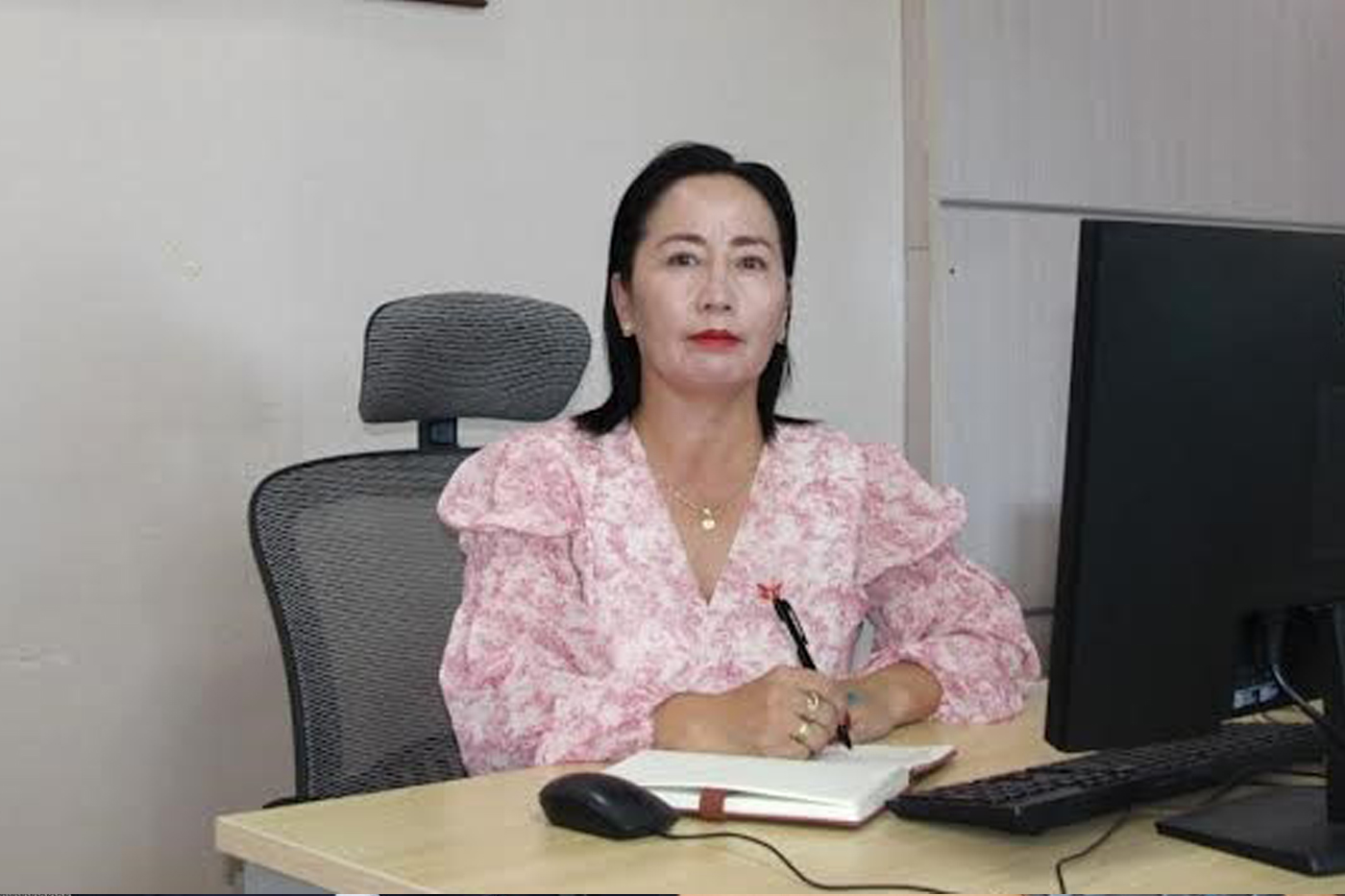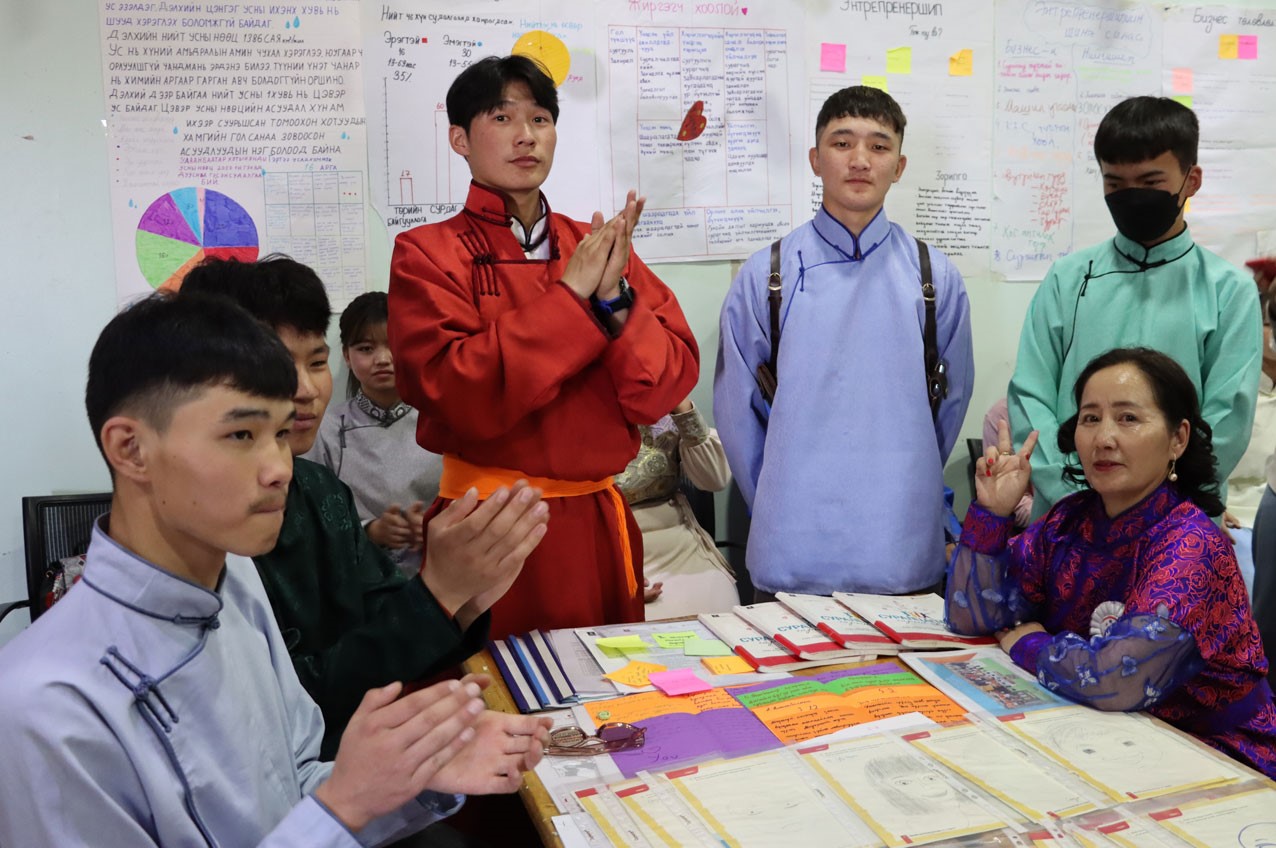Developing a Blended Learning Model for Rural Communities
Gobisumber is one of the target provinces for Save the Children’s “Entrepreneurship-Focused Socio-Emotional Skills for the Most Vulnerable Youth in Rural Mongolia” project. Kh. Amarjargal, the director of the province’s Lifelong Learning Center, has successfully led four rounds of ESEL training courses, training 80 local youth aged 14-25. Amarjargal is one of four ESEL teachers who have completed two rounds of ESEL training of trainers courses at the Gobisumber Lifelong Learning Center.

She shared, “It feels like just yesterday that I applied to work as a teacher/ counselor for the project’s Lifelong Learning class in 2020. Since then, I’ve taught classroom-based courses for three groups of students and used a blended learning approach for another group, by organizing my training sessions effectively and successfully. Initially, I felt hesitant about myself when conducting the ESEL training. However, after attending the training for trainers, I gained new skills, one of which is organizing effective training. This has led to significant personal growth, and I’ve become much more confident.”
She was pleased with how the ESEL training has transformed the personal development and communication skills of local children and youth. It has helped develop a business mindset, taught them to better understand themselves and others, and equipped them with skills that, while often not covered in school curricula, are essential for today’s youth.
She emphasized, “The education, knowledge, skills, living environment, and behavior of the young people who participated in the training are different, so it felt like acquiring new skills and learning the profession of ‘psychologist’ at the same time.”

The classroom-based and blended learning approaches of the ESEL training course proved to be an invaluable intellectual investment for both the young people and the young mothers caring for their children in remote areas. For example, the blended learning approach was unique in that it provided opportunities for young herders and mothers caring for their children in remote areas who wanted to study, but were unable to attend the ESEL training to develop and learn using innovative training methodologies.
The benefits of this project include the fact that young people who have participated in the training apply their knowledge and skills to run their micro-businesses, offer real work and services, and serve as role models not only in their communities, but also to peers of their own age. They progress step by step and continue to learn and grow.
Blended learning allows teachers to work remotely, regardless of distance, while also providing the flexibility to balance work and personal life and giving them time to study the subject. However, connecting with students and working closely with them remotely proved challenging. To overcome this, Amarjargal addressed the issue by creating a group chat to exchange information and build relationships on a daily basis.
In addition to teaching certain topics in the classroom at the request of the baghs, she has been working closely with the governors of remote baghs. This has expanded cooperation, engaged young herders, and provided them with timely information.

